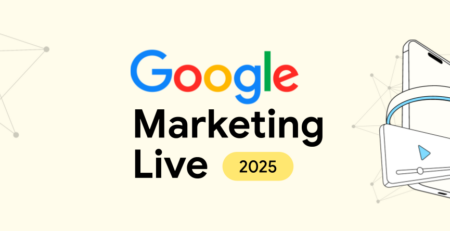A dozen things I learned in 2024
I’m inspired by Tom Whitall’s 52 Things I Learned in 2024 (I found number 35 particularly interesting), but one a week really is a lot of lessons. And so, here is my shorter list – just a dozen things (one a month) I have learned in 2024.
- There are more and more data every day. Four-hundred-and-three million terabytes each day to be specific. The more data there are, the more strategic and even sophisticated the approach needs to be, by category, to make sense of it, and to derive business and commercial advantage for clients from it all.
- Perhaps because of risk aversion, perhaps because of vested interest, perhaps because of inertia in the face of so much change, our industry is locked in many places by heritage practices. Some of the rules of yesterday are getting in the way of growth. They need to go.
- Forget pragmatism, forget office politics and people pleasing. It is more crucial than ever to keep a focus on the true north, and to be ambitious for the true solution – not just to settle for one that is good enough.
- I keep hearing people talk about advertisers, and adverts, without any specificity about what is meant by these terms. The ways in which brands can communicate with people who might buy them is much wider than the definition of advertisements as it is understood by most people. A brilliant influencer campaign, a smooth customer purchase journey, fantastic after-sales service can all drive consideration and business growth. In terms of media, there are lots of conversations about quality or premium, but quality/premium content means a very different thing to different people now, from Twitch to TikTok to Ted Lasso. What this means for a brand is that placing advertising for high attention is perhaps one part of a winning strategy, not the whole end goal.
- Creativity matters, and a large number of people suffer from creativity phobia, especially in our industry. Overcoming this is important for outcomes, but also for enjoyment of work. If fun is something that you only have when you are not working, then you’re not working right. Making a positive move to ensure that work is fun in the right way (not in the way that my friend Harjot calls “funishment”, or forced fun), is something to consider for everyone. For help with creativity, see our new book.
- It turns out that (as I have always suspected, from a very young age), age doesn’t matter. I am working with C-suite level people in their 20s and early 30s whose brilliance amazes me, and who are happy to hear about some of my experience, and then reframe it with their own experiences. How cool is that? I heard the other day of a sales person who had been told that they couldn’t be promoted solely because of their age, even though their proven ability and track record are better than other candidates. This approach can only lead to a downward spiral. Equally throwing out wisdom because an advanced age is attached to it is dumb.
- This year, I learned what next-level chairing is like from the Glass Lion Jury at Cannes, chaired by the completely inimitable Cindy Gallop. She ensured that all the diverse points of view were listened to, she didn’t let anyone feel unheard, and when opinions went in a different direction from where they had started because of a new point of view, she made sure that we were all aligned. And we still finished judging at a reasonable pace.
- Time is finite. This might seem obvious, but in a new global job the requirements of timezones can be demanding. Equally important is the understanding that the choices people make about what to do with their time transcends the traditional understanding of a media day. More people are spending more time with media than they used to, but nearly half of that time is spent with media that is not ad funded.
- Global roles are fascinating. Diverse views, diverse ways of thinking.
- Radiators not drains is one of the most important cultural principles at work.
- Every leader has responsibilities, and each leader will have their own priorities. I’d recommend these three: to question everything, to lead creatively, and to be your authentic self.
- GenAI lies, unashamedly. In one early use of it, I asked it to write me an application letter for a non-exec role I had been asked to apply for as chair of a regional theatre group. I handed over my resumé, and moments later, there was the letter. Bit bland in tone, but perfectly serviceable, apart from the made up experience it said I had at the Royal Shakespeare Company. We’ll find out in the course of 2025 just what this means for facts on the internet.
And to make it a “Baker’s Dozen”, or 13 for the price of 12:
13. Your friends matter, and amazingly (and wonderfully), you can make new friends all the time. Moving to a radically different organisation after three decades in the same place I find, at four months in, that there are new relationships that are important and inspiring. At the same time, my old friends are still looking out for me (and I have your back, too).




